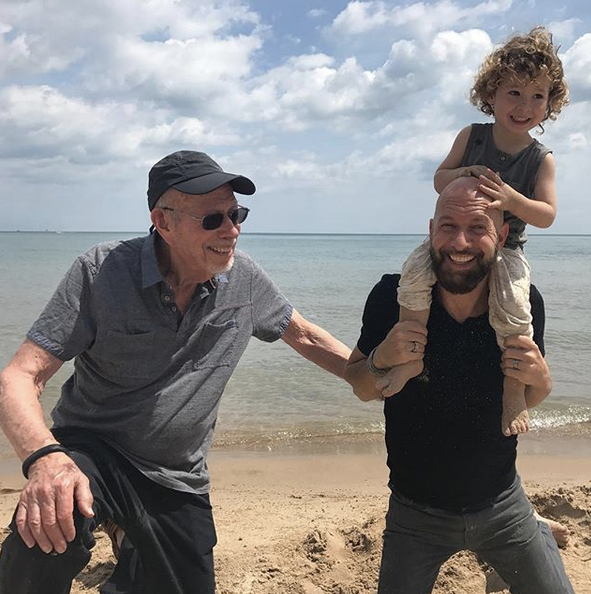As I write this, I have been a parent for over 1,300 days.
And if you’ve been on my Inner Circle email list, you know that I have repeatedly said that my son Tenn is my greatest teacher. Being a parent has taught me more about myself and the world than anything else.
This list is not intended only for parents with little kids running around the house. This list is just as much for the new parents as it is for the parents whose children have long since reached adulthood.
And this blog post will continue to serve as my own reminder of the lessons I continue to learn on this journey we call parenting:
1. You are not always right.
Don’t play God with your children. Model for them that it’s okay to be wrong sometimes. And if they question you, it’s not disrespect: It’s independent thinking, and that’s something to encourage, not shame.
2. Don’t 0ver-control too early.
If you take an infant, with an undeveloped prefrontal cortex, to a restaurant, airport or public area, it’s not the responsibility of the child to be quiet or behave. It’s your fault for taking them there. Disciplining them for being themselves will harm their natural spontaneity.
3. Your children owe you nothing when they grow up.
It was your choice to have them, change their diapers and spend money on them. If you find it a burdensome chore for which you expect something in return, then you owe your children: They deserve a better, more loving childhood.
4. One of your children’s needs is protection.
So if you’re with a partner who’s physically or emotionally abusive, remove your children from that environment. No matter how dependent you may feel on your partner, it’s not nearly as much as your child is dependent on you.
5. Don’t live through your child’s accomplishments.
Live your own life and show them love unconditionally for who they are, not conditionally for what they do & how well they do it. This will lead them to an unhappy, unfulfilling lifetime of trying to perform and achieve for love.
6. It is not enough to be physically present for your children.
You must be emotionally present as well. Put down that phone. Make eye contact. Make ear contact. Make heart contact.
7. Never complain or be negative about your partner around your child.
If you get divorced, model a healthy way to do it, without using your child as a pawn in a vendetta. What’s most important to children is that they continue receiving the same (or more) love from both parents.
8. It is the role of teenagers to separate from their parents.
It is your role to understand the process and not take it personally – and to help them with their self-esteem and confidence as you slowly allow them an increasing degree of freedom.
9. It is your job is to take care of your children’s needs.
It is not their job to take care of your needs. So if you’re feeling depressed, anxious, unloved, or upset about something in your life, look to someone else besides your children for consolation.
10. Your child’s opinion matters.
No matter how strongly your beliefs about family, religion or morality may be, your child may have different opinions on these or want to pursue a different lifestyle. Your job is not to judge and control them, especially as they grow older, but to accept and understand them.
11. No one is perfect, so don’t expect your child to be.
Criticizing, ridiculing, shaming, or nagging a child for their imperfections will harm their self-esteem. And don’t over-react if they make mistakes and experience failure. You did too. It’s called learning.
12. Children are not pets.
There is no such thing as a bad child. There’s only bad parenting. Most parents who call their children bad are really saying, “I can’t control them. And you shouldn’t be able to control them.”
13. The Golden Rule.
When in doubt on how to deal with something your child is doing, the right answer is always love and compassion.
14. Anger is not the answer.
If your kids misbehave and you get angry at them, the lesson you’re teaching them is about anger, not about behaving better. Be the person that you want your children to become.
More to come…
RELATED BLOG POSTS
What is Enmeshment and How to Get Rid of It
The Quick-Start Guide to Healing Trauma and Psychological Wounds
How to Survive Family Holidays

